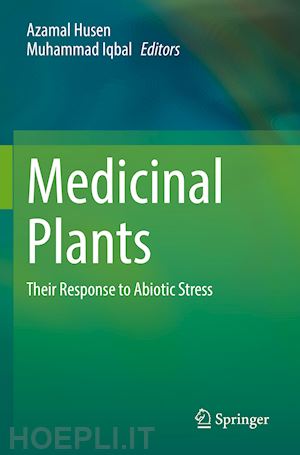
Questo prodotto usufruisce delle SPEDIZIONI GRATIS
selezionando l'opzione Corriere Veloce in fase di ordine.
Pagabile anche con Carta della cultura giovani e del merito, 18App Bonus Cultura e Carta del Docente
This book provides a comprehensive overview of medicinal plants and their interaction with abiotic stress in terms of morphological, physiological, biochemical, and molecular variations, and explains the adaptation and tolerance mechanisms involved. It presents various mechanisms that become operative in medicinal plants to combat stressful situations. The book discusses the secondary metabolites and/or bioactive compounds produced in medicinal plants under abiotic stress conditions, and the use of biostimulants and/or phytoprotectants to alleviate the adverse effects of abiotic stresses on medicinal plants. Additionally, it is likely to address opportunities and challenges in molecular and omics studies of medicinal plants under abiotic stress conditions. Overall, the chapters are developed by eminent subject experts with due care and clarity and cover an up-to-date literature review with relevant illustrations. The book would cater to the need of graduate and post-graduate students, researchers as well as scientists, and may attract the attention of pharmaceutical companies/industrialists and health policymakers.











Il sito utilizza cookie ed altri strumenti di tracciamento che raccolgono informazioni dal dispositivo dell’utente. Oltre ai cookie tecnici ed analitici aggregati, strettamente necessari per il funzionamento di questo sito web, previo consenso dell’utente possono essere installati cookie di profilazione e marketing e cookie dei social media. Cliccando su “Accetto tutti i cookie” saranno attivate tutte le categorie di cookie. Per accettare solo deterninate categorie di cookie, cliccare invece su “Impostazioni cookie”. Chiudendo il banner o continuando a navigare saranno installati solo cookie tecnici. Per maggiori dettagli, consultare la Cookie Policy.